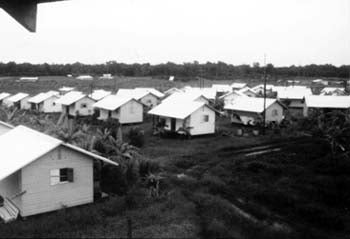Understanding the Social Conditions that Allow Them to Flourish
The prevalence of charismatic leaders runs counter to the view of situations such as Jonestown, where 918 members of the People’s Temple died, as outliers or situations that could never occur again. Social changes or alterations in social conditions can make leaders less or more charismatic depending upon the type of changes. Often people cite how Adolf Hitler was an extremely charismatic man but it is hard to contextualize this charisma in the modern age. It is difficult to believe that this person could incite such violence until the social condition is understood; specifically, education in Germany before the Nazi era.
In the short story “Learning What Was Never Taught” by Sabine Reichel one can begin to understand that the proliferation of Nazism was a result of a serious flaw in the education system that existed in Germany during this era. Reichel, raised in the aftermath of Nazi Germany, recounts her teacher’s view of what allowed the Nazi’s to rise. “My own generation and my students lived in a very strict and conformist structure which existed much earlier than 1933…Today, it wouldn’t be possible to stand in front of a class in uniform and in all seriousness talk about racial theory. The students would die laughing” (Hirschberg & Hirschberg, 2009, pg. 196). This view reflects an inherent danger in an education system too conformist in nature because it may limit having an independent mind or critical view of ideas. This idea is echoed by Bassam Tibi, in the book The Challenge of Fundamentalism. Tibi relates that Islamic fundamentalism has stifled learning in Middle Eastern institutions by removing critical thought and independent thinking. “One of the major processes addressed in this book is that Islamic (and other) fundamentalists, in their vision of “remaking the world,” reclaim not only the sciences, the family, and education” (Tibi, 1998). Reichel and Tibi both show that if conditions are serving to the purpose of charismatic leaders than it is very possible for these leaders to take advantage of minds that are accepting.
References
Hirschberg, S., & Hirschberg, T. (2009). The millenium reader. (5 ed., p. 191). Upper Saddle River, NJ: McGraw Hill Company.
Tibi, Bassam. The Challenge of Fundamentalism: Political Islam and the New World Disorder. Berkeley, Calif London: University of California Press, c1998 1998.
Photo By Fielding McGehee and Rebecca Moore - Photo Courtesy of The Jonestown report, CC BY-SA 3.0
~Citation~
Triola Vincent. Tue, Jan 19, 2021. Charismatic Authority: Jonestown & Fundamentalism Retrieved from https://vincenttriola.com/blogs/ten-years-of-academic-writing/charismatic-authority-jonestown-fundamentalism
